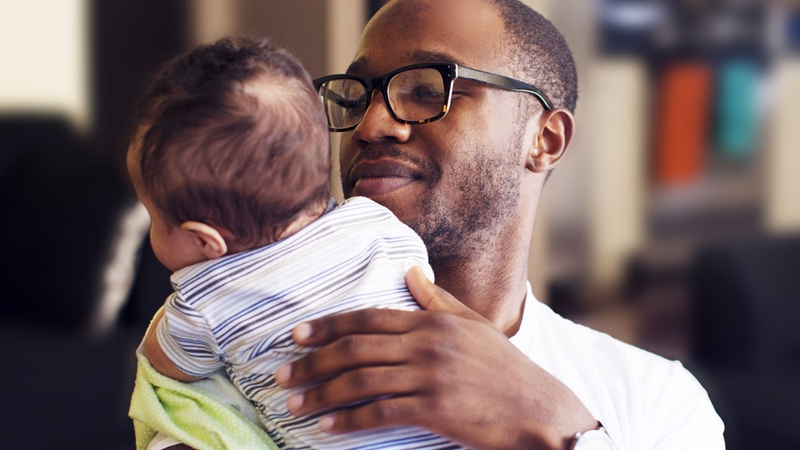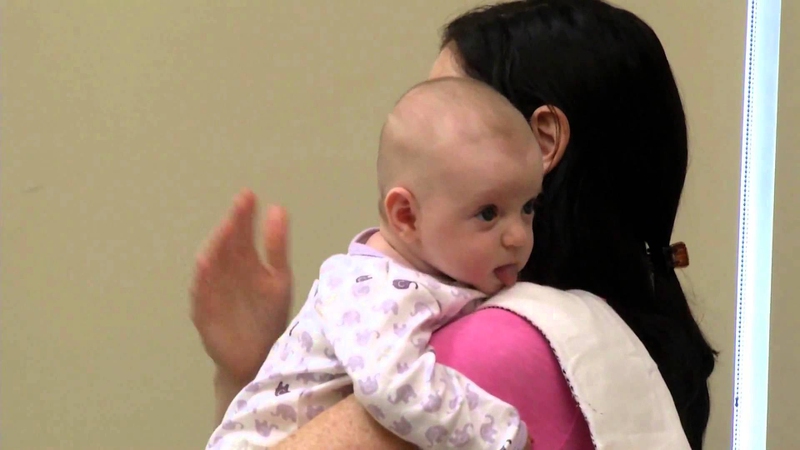There are many things that you will have to master when you become a parent. From changing diapers to swaddling, there are a number of skills you will only perfect from actually doing it when your baby arrives. Burping your baby is one must learn skill you will practice at multiple times a day. You'll need to burp your baby to release gas that builds up in the gastrointestinal system. Burping a newborn can feel intimidating at first and as a new parent, you probably have a list of question ready to be answered. The most common questions will be discussed here and some tips would be revealed to help you be more assured when burping your newborn.

How to Burp Your Baby
Chest or shoulder
You'll want to place a cloth over your shoulder so it extends down your back a little in case your baby spits up. Then place your baby on your chest so their chin rests on your shoulder. Use one hand to support your baby while the other rubs and pats your baby's back.
If you baby has more control over their head, you can place them further on your shoulder so their belly gently presses on your shoulder. Again, support your baby with one hand while the other pats and rubs their back.
On your lap
Place a cloth over your lap and sit your baby so they face away from you. Support their body with the palm of your hand by their chest so the fingers can support their jaw and chin.
On lap while face down
Again place a cloth on your lap, then lay your baby on your legs and their head is facing down, their body should be perpendicular to yours. Use one hand to support their jaw and chin with one hand ensuring their head isn't lower than their body so the blood will not rush to their head. Then use the other hand to rub or pat their back. Try burping a newborn this way for a few minutes and if nothing happens, you may want to try a different position.
Additional tips
Keep an additional cloth handy to clean up any spit up.
Some babies will need a little bit of a firmer pat to get the burp up.
When rubbing or patting your baby, focus on the left side of their back since this is where the stomach is.
If you baby is fussing a lot while feeding, try burping them instead of waiting till they are finished. This fussiness is possibly due to gas and continuing feeding them will only result in more air being swallowed and more discomfort for them.
How Often Should You Burp Your Baby?
Depending on what method you are using to feed your baby, breast or bottle will determine how often you should be burping them.
If bottle feeding:
Try to burp your baby after they have consumed 2 to 3 ounces or 60 to 90 ml.
If breastfeeding:
Aim to burp your baby when you switch from one breast to the other during feeding. This will allow for more room for the baby to continue feeding. In some cases, baby may refuse to feed longer because of discomfort, so try burping when they become fussy or refuse to eat more. If your baby is only feeding on one breast at a time, try burping a newborn in the middle of the feeding and continue on the same breast.
What to Do If Burping Baby Isn't Enough?
There can be a number of reasons why your baby still appears uncomfortable even after burping them. If changing positions isn't working and your baby feels discomfort from gas regularly, try these tips to relieve or reduce the gas production:
Change your diet. When breastfeeding, the foods mom eats can be causing more gas in the baby. The most common discomfort can be coming from dairy products like cheese, milk and ice cream. Try eliminating one food at a time for a few weeks to see whether it makes a difference.
Formula. If using a formula that you mix with water to feed your baby, simply shaking the formula can be causing more gas. Shaking the bottle will add air your baby will consume and this can cause excess gas. Try switching to a premixed formula instead of
one you have to mix yourself.Bottle nipple. Nipples can come in a variety of sizes that affect the flow and are often categorized by age such as newborn, preemie, 6+ months and so on. Using the wrong nipple flow can result in more formula enter the baby's mouth too quickly which can result in more air being swallowed. Be sure to check the nipples you are using to feed your baby and that they are age appropriate.
Bottle. Bottles can also come in a variety of styles. If you feel that burping doesn't seem to be helping, it might be due to the bottle you are using. Look for a bottle that is designed to limit the amount of air the baby will swallow, such as ones that are slightly angled, ones with disposable liners or vents that will decrease the number of air bubbles the baby will suck out.
What If Your Baby Spits Up During a Burp?
Spitting up is usually not a cause for concern when you are burping a newborn; most babies will spit up a little when they burp. This is due to the gas bubbles pushing up some of the food as it breaks back out the stomach. Babies will tend to stop spitting up once they begin to sit up on their own and may stop altogether around six months. A mouthful or two of spit up is normal, but if they spit up more frequently with each feeding, you might want to consider talking to your baby's pediatrician.

View All Comments /Add Comment